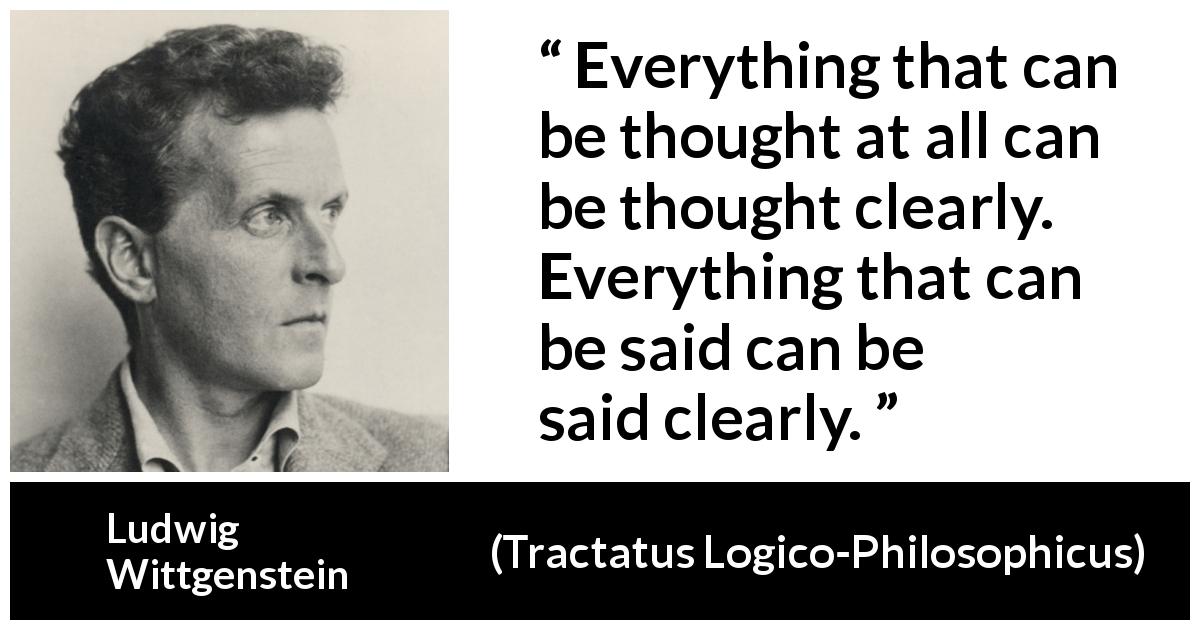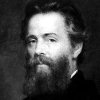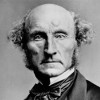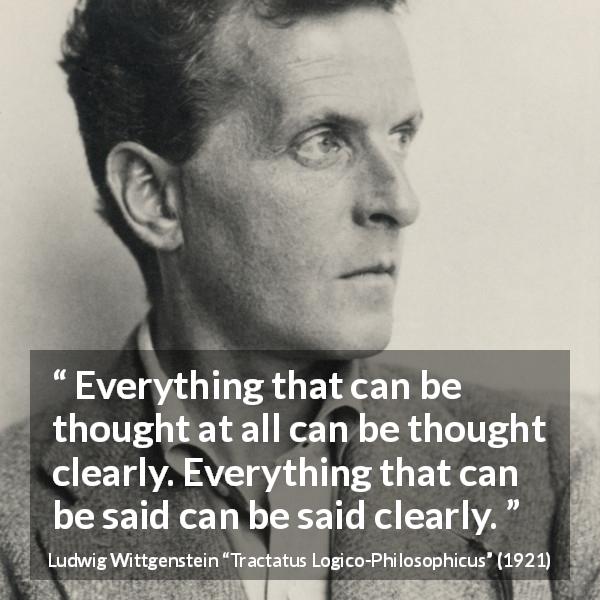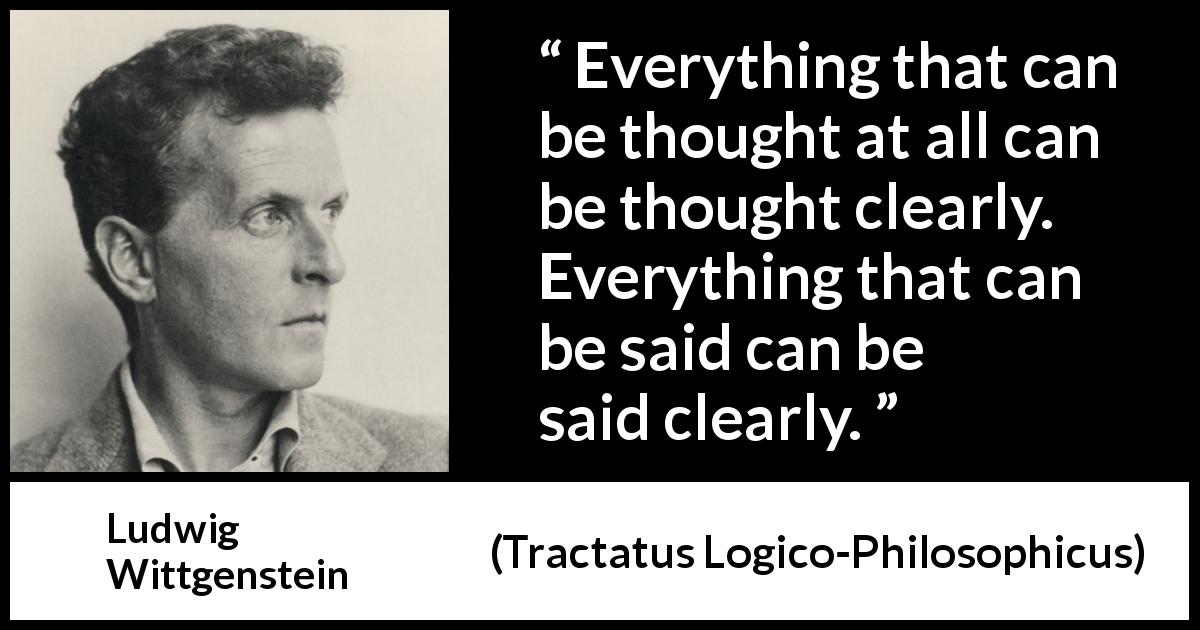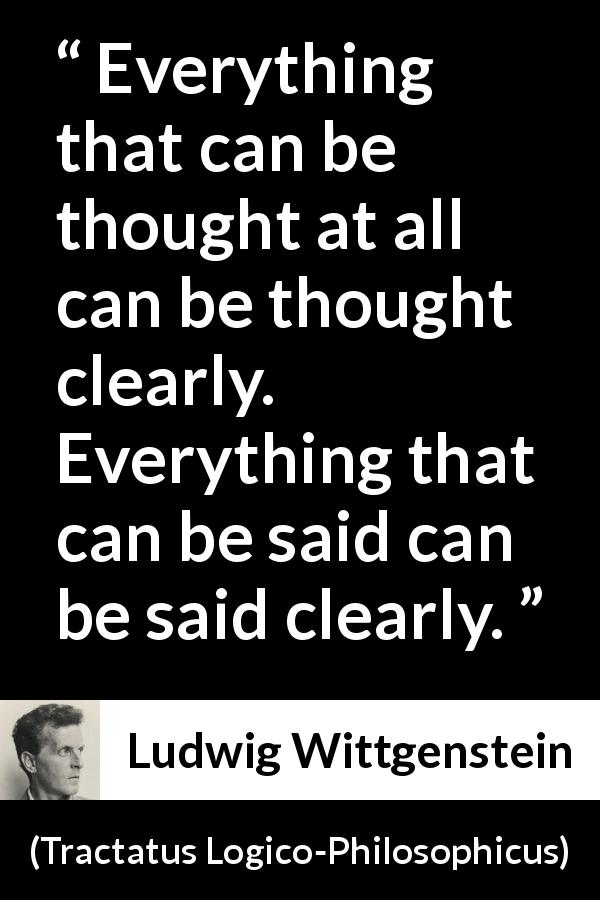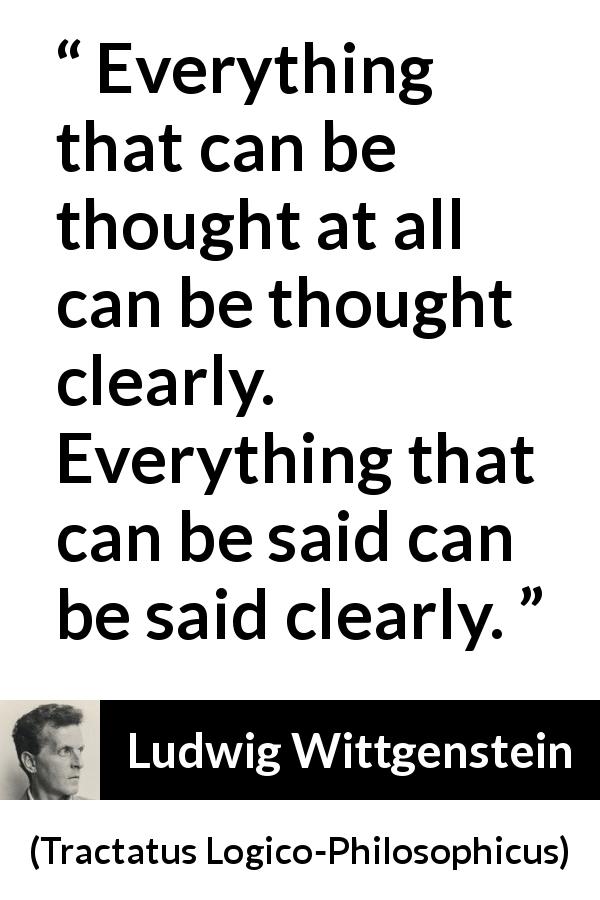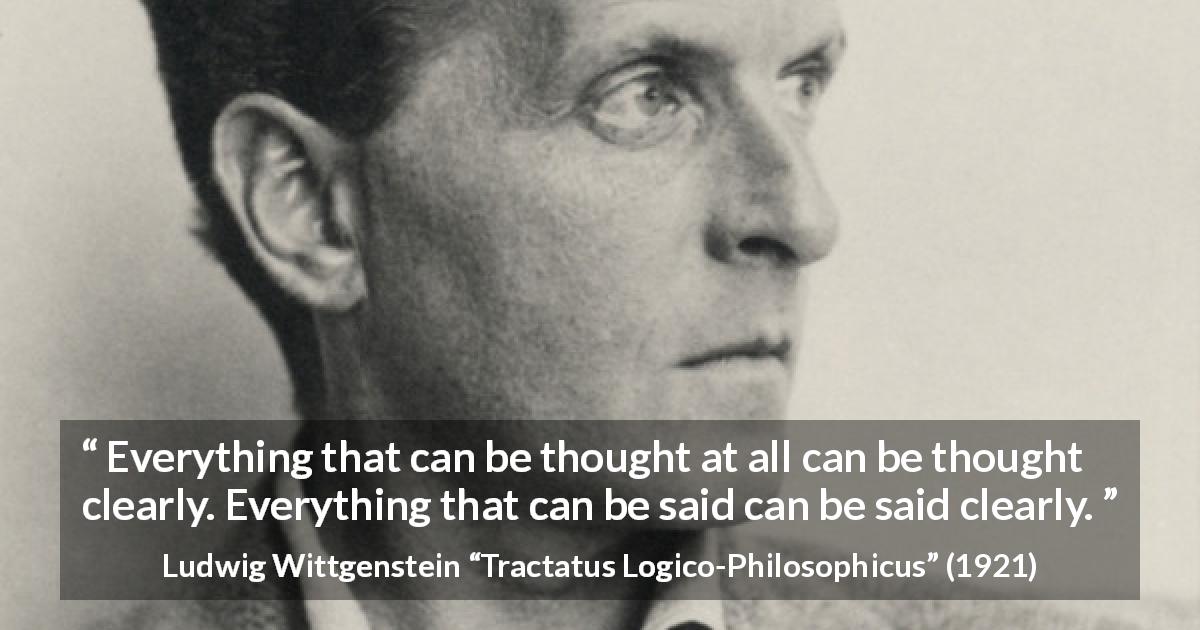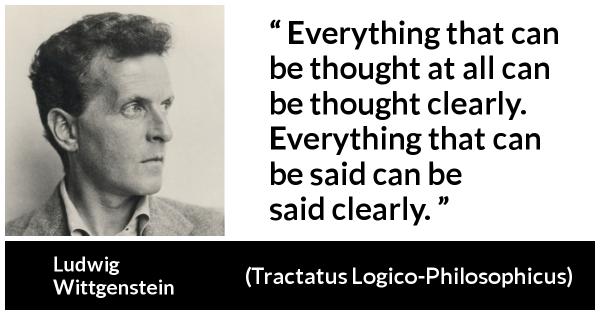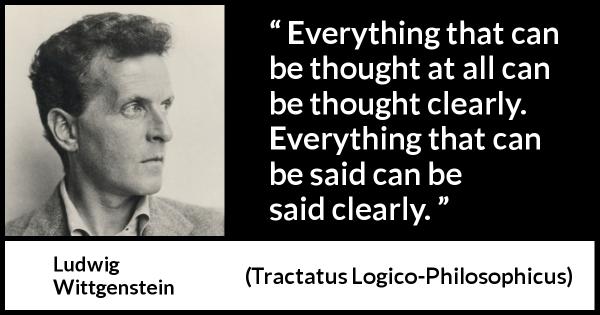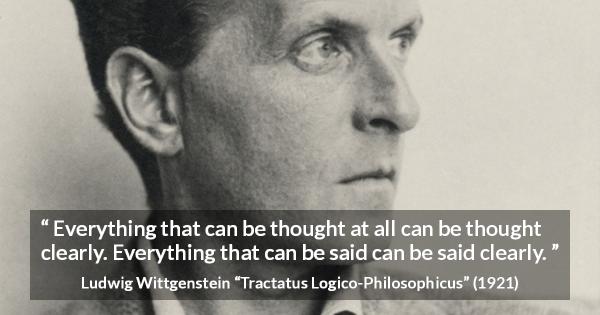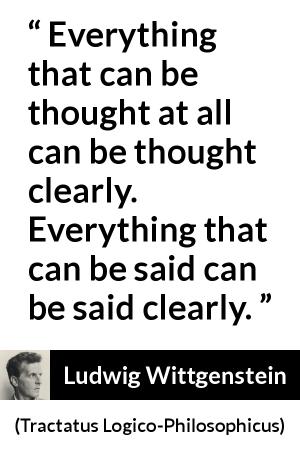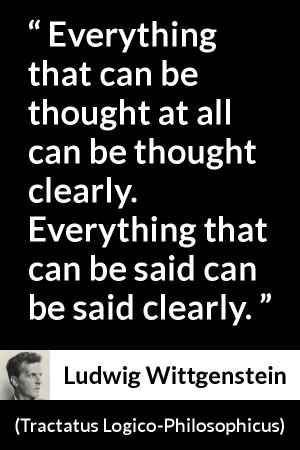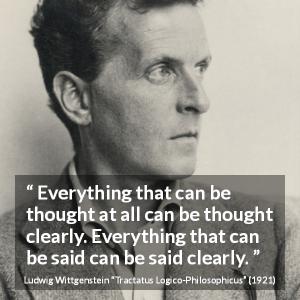“ Everything that can be thought at all can be thought clearly. Everything that can be said can be said clearly. ”
Ludwig Wittgenstein, Tractatus Logico-Philosophicus (1921). copy citation
| Author | Ludwig Wittgenstein |
|---|---|
| Source | Tractatus Logico-Philosophicus |
| Topic | speech thought clarity |
| Date | 1921 |
| Language | English |
| Reference | |
| Note | Translated by C. K. Ogden |
| Weblink | http://www.gutenberg.org/files/5740/5740-pdf.pdf |
Context
“
It should limit the unthinkable from within through the thinkable.
4.115 OGD [→GER | →P/M] It will mean the unspeakable by clearly displaying the speakable.
4.116 OGD [→GER | →P/M] Everything that can be thought at all can be thought clearly. Everything that can be said can be said clearly.
4.12 OGD [→GER | →P/M] Propositions can represent the whole reality, but they cannot represent what they must have in common with reality in order to be able to represent it—the logical form.” source
It should limit the unthinkable from within through the thinkable.
4.115 OGD [→GER | →P/M] It will mean the unspeakable by clearly displaying the speakable.
4.116 OGD [→GER | →P/M] Everything that can be thought at all can be thought clearly. Everything that can be said can be said clearly.
4.12 OGD [→GER | →P/M] Propositions can represent the whole reality, but they cannot represent what they must have in common with reality in order to be able to represent it—the logical form.” source
